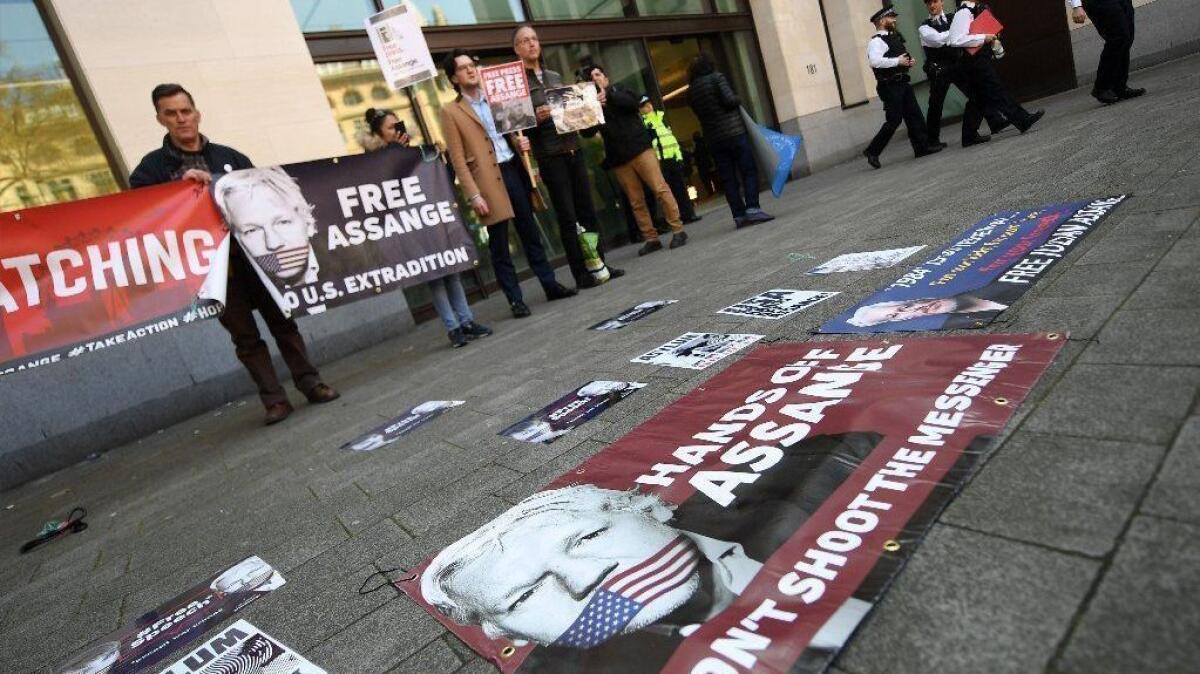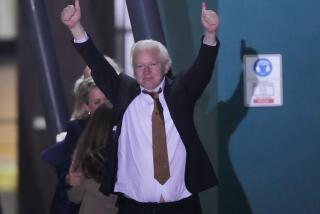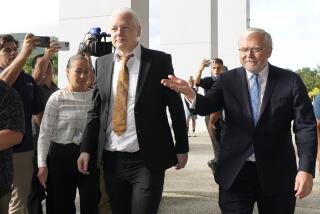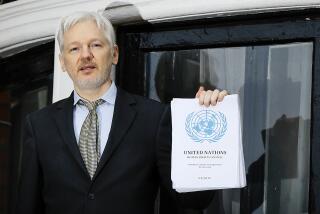Readers React: So what if Julian Assange is creepy? He and the free press must be defended

- Share via
To the editor: I couldn’t disagree more with Virginia Heffernan’s takedown of Wikileaks founder Julian Assange.
Assange was arrested and is being extradited not for any of the bad things he did, but for the one good thing: He collaborated with Chelsea Manning to expose U.S. war atrocities in Iraq. Assange’s arrest is a warning to every aggressive reporter working to expose the U.S.’ dark side; it’s a direct attack on the 1st Amendment.
Sometimes, defending press freedom requires defending creepy people, like Assange or the “anti-Catholic, anti-Semitic, anti-black, and anti-labor” scandal sheet editor Jay Near in Minnesota in 1931, who won a U.S. Supreme Court case cited as precedent for the New York Times’ and Washington Post’s right to publish the Pentagon Papers.
Mark Gabrish Conlan, San Diego
..
To the editor: Heffernan reaches a new low with her piece on Assange.
She apparently could not care less about what used to be seen as the critical role of the press: shining a light on government misconduct. The single instance of Assange, having worked with Manning, releasing the video of the Baghdad helicopter strike in 2007 did more to advance democracy and truth than anything Heffernan has done.
Assange did not seek asylum because of allegations of rape, but because he correctly discerned that those charges were being pursued to provide a basis to turn him over to the U.S. government for prosecution.
Donald Norris, Oxnard
..
To the editor: I don’t condone everything Assange did, but I go with the perspectives of Edward Snowden, Daniel Ellsberg and Noam Chomsky over Heffernan.
Assange did service to the right of people in democracies to know the dark things their governments do and hide from them, and to the right of journalists to expose such things.
Stephen Fischer, Los Angeles
Follow the Opinion section on Twitter @latimesopinion and Facebook
More to Read
A cure for the common opinion
Get thought-provoking perspectives with our weekly newsletter.
You may occasionally receive promotional content from the Los Angeles Times.










